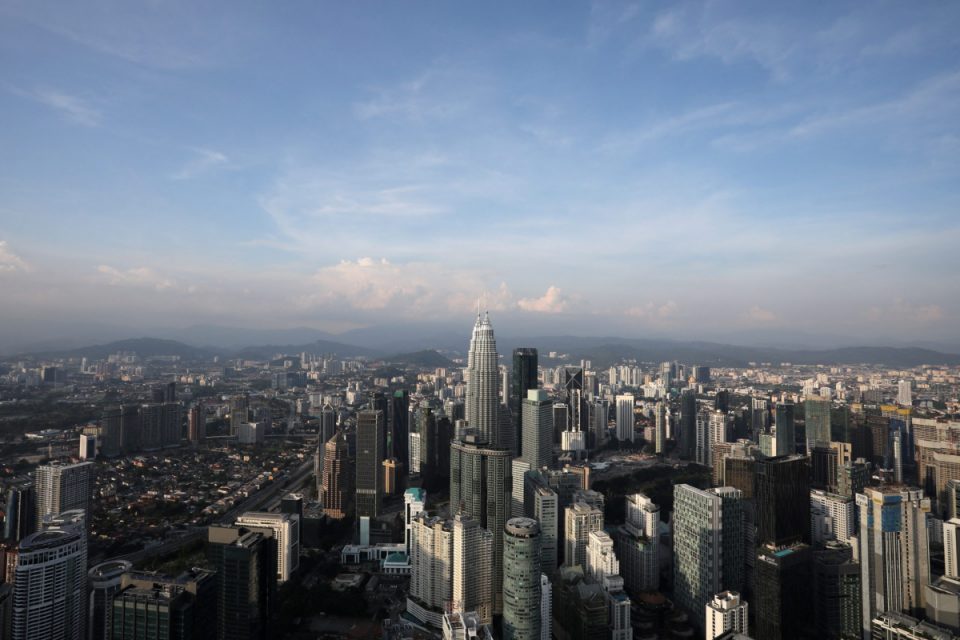KUALA LUMPUR, June 20 — Malaysia’s global competitiveness ranking has improved by five notches to 27 from 32 last year, according to the World Competitiveness Ranking (WCR) 2023.
The Ministry of Investment, Trade and Industry (Miti) said the positive ranking is a recognition of the Malaysian government’s overall efforts in strengthening its economic fundamentals.
“More specifically, the improved ranking is attributed to Miti’s key policies and initiatives in positioning the country as the preferred destination for investment, business and trade,” it said in a statement today.
The WCR is an initiative by the Institute for Management Development’s (IMD) World Competitiveness Centre (WCC), which is a leading annual report on the competitiveness of countries published since 1989.
IMD’s WCR is based on 336 competitiveness criteria categorised into four factors: economic performance, government efficiency, business efficiency, and infrastructure.
Ranked 27 among 64 economies, Malaysia recorded an improvement in all four competitiveness factors, denoting the country’s encouraging and resilient progress against the lingering impact of global economic uncertainties and crisis, and multi-faceted domestic challenges.
Address issues at national, sub-national levels
Miti Minister Tengku Datuk Seri Zafrul Abdul Aziz said while Malaysia performed well in terms of its prices, basic infrastructure and tax policies, it must earnestly address issues such as talent development of an industry-ready workforce, digital-first mindset for sectors, and regulatory reforms for ease of doing business at national and sub-national levels.
“These are areas that Miti and its agencies are seriously working on through the upcoming New Industrial Master Plan 2030, which is set to reform Malaysia’s manufacturing sector’s foundation and to become a more competitive economy,” he said.
Meanwhile, Malaysia Productivity Corporation (MPC) chairman Datuk Kamaruzzaman Johari said the improvement in Malaysia’s competitiveness ranking in WCR 2023 reflects the country’s stability and resilience in the face of numerous challenges.
“MPC believes in pushing further to enhance productivity across all sectors that will improve overall competitiveness factors.
“Our focus is on key productivity drivers such as talent development, technology adoption, and regulatory reforms for a thriving business environment. MPC is committed to embedding environmental, social and corporate governance (ESG) principles and fostering a sustainable economy,” he added.
Miti’s continued commitment to boosting Malaysia’s global competitiveness
Miti is committed to enhancing Malaysia’s global competitiveness, given its effectual influence on Malaysia’s investment, trade, and industrial development.
The New Industrial Master Plan 2030 (NIMP 2030), set to be launched in August 2023, will focus on advancing economic complexity, facilitating digitisation and technology for Malaysia’s manufacturing sector, pushing for carbon neutrality, as well as safeguarding economic security and inclusivity.
Miti has identified five sectors mainly aerospace, chemicals and petrochemicals, digital economy, electrical and electronics, and pharmaceuticals that will drive industrial transformation, as well as enhance the manufacturing and exports of more complex products to further develop Malaysia into a knowledge-based economy.
The focus on these industries will also propel Malaysia’s small and medium enterprises (SMEs) into high-yield and high-value market segments.
In terms of enhancing the ease of doing business, MPC has been mandated to manage the unnecessary regulatory burdens on businesses by reducing issues and challenges related to government bureaucracy.
Miti believes the effort to increase Malaysia’s global competitiveness should hinge on a whole-of-nation approach in finalising and implementing the NIMP2030, based on a concerted public-private strategy that empowers all key stakeholders such as investors, businesses, SMEs and the rakyat, with sufficient regard for sustainability and inclusivity principles.
— Bernama





